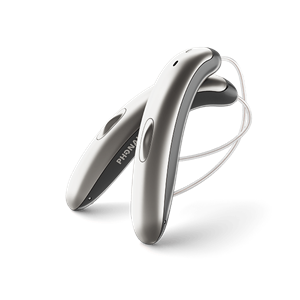How to communicate with someone with hearing loss: 10 Do’s and Don’ts | Connect Hearing

How to communicate with someone with hearing loss: 10 Do’s and Don’ts | Connect Hearing
5 Min.
Publication Date: September 21, 2022
Having a hearing loss can mean that certain environments or speaking tendencies make communication more challenging. To better explain to others how they can support you, we’ve got ten do’s and don’ts for communicating with someone with hearing loss. Even if you don’t have a hearing loss yourself, familiarizing yourself with these tips helps you stay inclusive in conversation and support those around you.
Have you ever wanted to explain to those around you how they can better communicate with you despite your hearing loss? Have you ever wanted to know how you can better communicate with someone who is hard of hearing?
Whether you have a hearing loss or not, when people on both sides of the conversation understand one another, there is less chance for misunderstandings, frustration, and incorrect assumptions.
To help encourage better conversation and inclusivity, we’ve rounded up ten do’s and don’ts for communicating with someone with hearing loss.
If you have a hearing loss, these are tips you can offer to your friends, family, and co-workers to help them understand what helps you stay engaged in conversation. If you’re someone who does not have difficulty hearing, these are important points to remember when communicating with others who might not immediately understand you in the way you expect.
1. Don’t try to have conversations from a different room
Sound does not travel very well through walls or doors, and a hearing aid will typically only pick up sounds within a five-metre distance. If communicating between different areas is something that you need to do, there are hearing accessories to help with this kind of situation; however, it’s best to stick with face-to-face conversations if someone is relying on hearing aids.
2. Don't yell or raise your voice
While you might think that increasing your volume would help get your point across, it actually changes your facial expression and distorts the sound, which makes speech reading more difficult. It’s best to speak naturally, without exaggerating your words or shouting.
3. Don't cover your mouth (if possible)
Facial expressions or lip movements are crucial aspects of understanding for many people with hearing loss, and your speech will be more difficult to understand if you’re resting your hands near your face or eating, smoking, chewing gum, etc. Having trouble communicating with face masks? Check out our blog on tips for communicating with masks.
4. Don't brush over specifics or important information
When providing important information in a conversation like a phone number, time for a meeting, or an address, take the time to check that the person you’re speaking with heard you clearly. You can try writing the information down, or asking them to repeat it back to you to make sure it’s correct.
5. Don't speak too slowly
It’s helpful to use pauses when speaking, but drastically slowing down doesn’t help someone process your speech as well and makes lip-reading harder. Remember - we hear with our brains, not with our ears! It’s up to the brain to take the sounds heard by the ears and develop a coherent message from them, otherwise known as auditory processing.
6. Do have the patience to repeat yourself
While you might find it frustrating when someone asks you to repeat yourself, using phrases like “never mind” come across as dismissive, and exclude people from a conversation. It’s important that you make an effort to repeat the sentence, or even find a different way to explain it instead of repeating the same words over and over again.
7. Do take care when changing topics
Anyone with a hearing loss needs to use extra focus to stay engaged with the topic of a conversation. If you switch topics very quickly, it’s likely that someone with hearing loss will miss the beginning of the new topic and have to catch up on what’s being said. It’s helpful if you add the listener’s name throughout the conversation as you change topics because it will make sure to get their attention.
9. Do take more care in noisy environments
While this all depends on someone’s degree of hearing loss, it’s generally helpful to use more pauses and face-to-face communication when speaking in an environment with lots of background noise like a restaurant or party. Consider switching environments to have important conversations, or if the person you’re with is struggling to hear.
10. Do be mindful when speaking in groups
Just like with changing conversation topics quickly, it can be easy for someone with a hearing loss to lose track of the conversation if speakers keep changing or start talking over one another. When in a group setting, make sure you take turns speaking and avoid interrupting others.
Awareness and knowledge help everyone
Don’t be afraid to let others know about your hearing loss and the ways they can help make social situations easier for you. When people are well informed, it lowers the chances of miscommunication and frustration on both sides.
If you or your loved one are experiencing a change in hearing, getting tested by a hearing care professional can provide the information you need to make the best decisions for your hearing health and improve the way you interact with the world.
To explore your options, book an appointment to speak with one of our hearing care professionals today!
Author
Connect Hearing Canada



